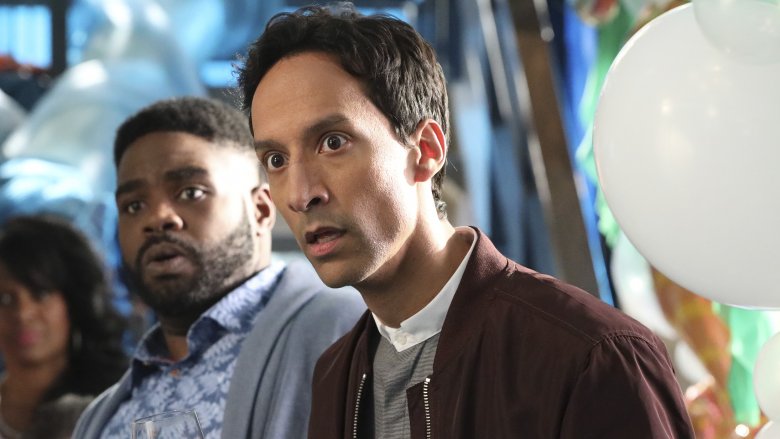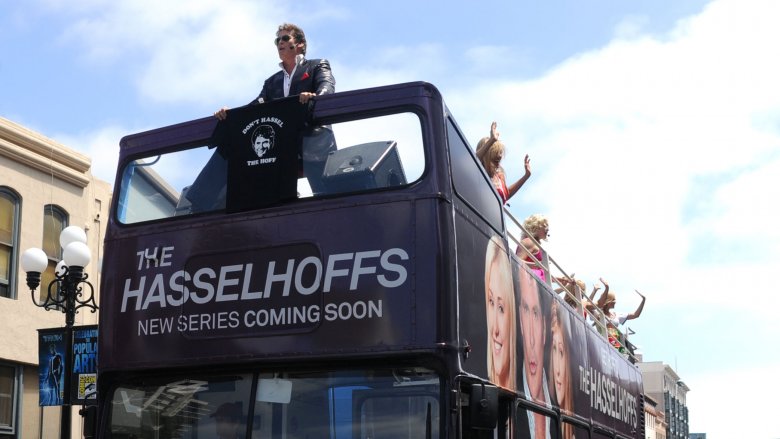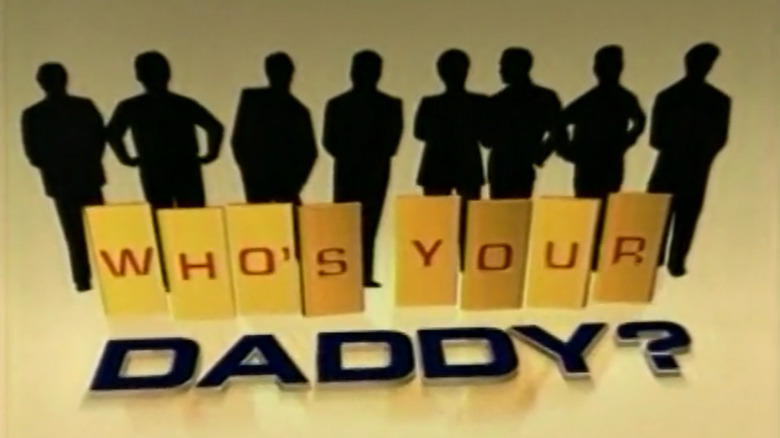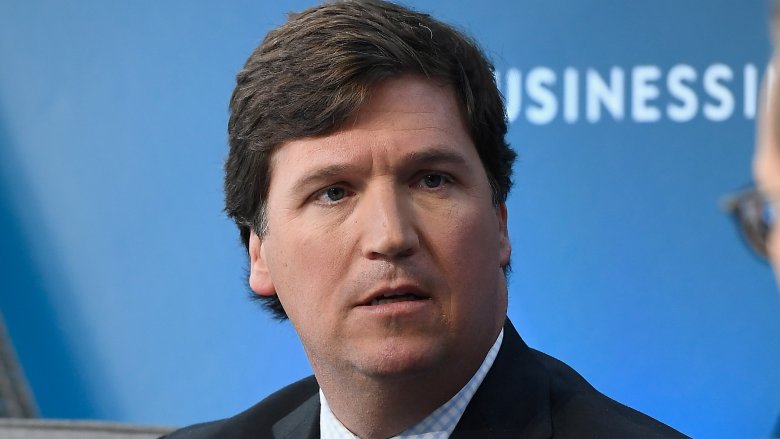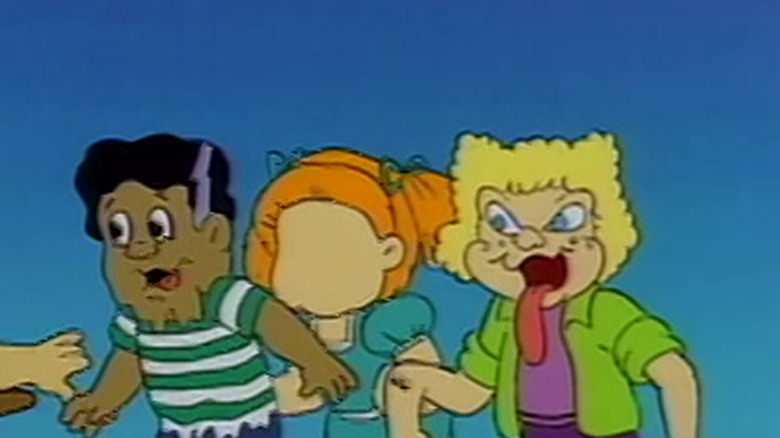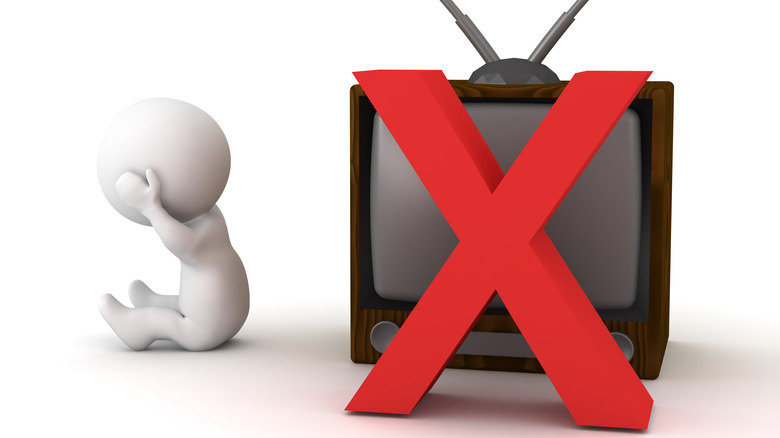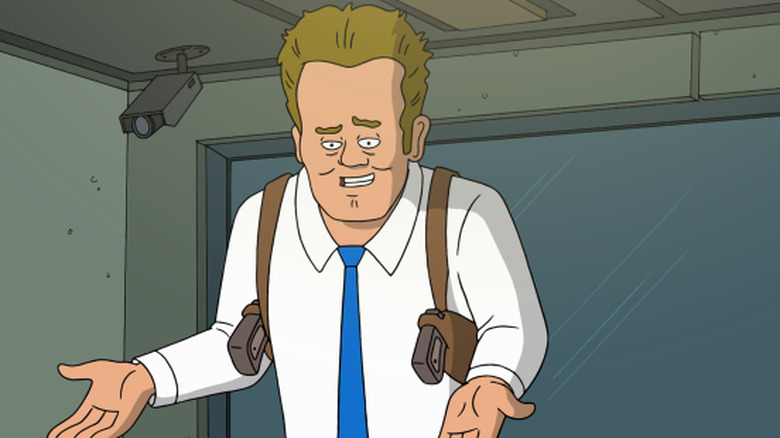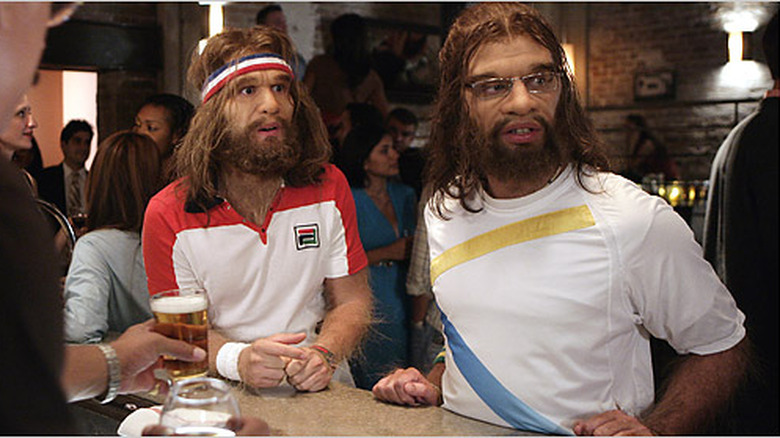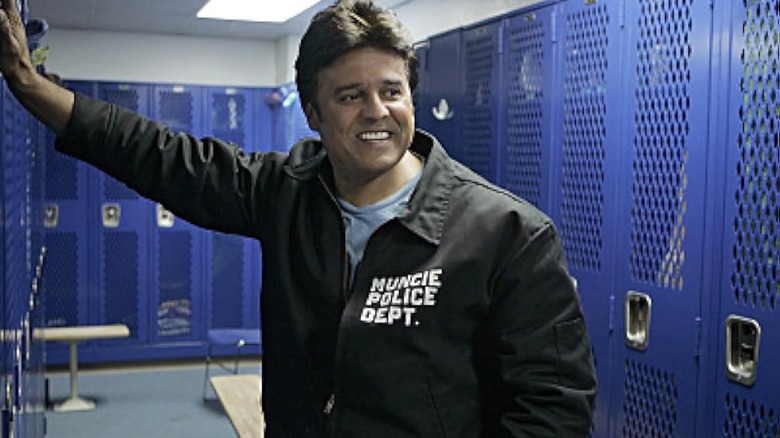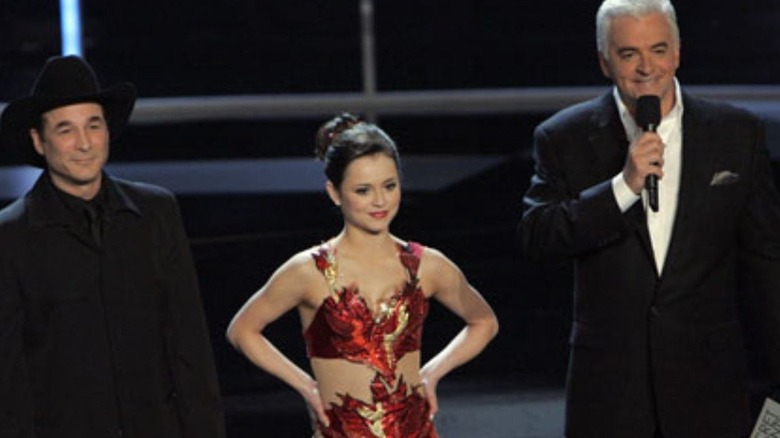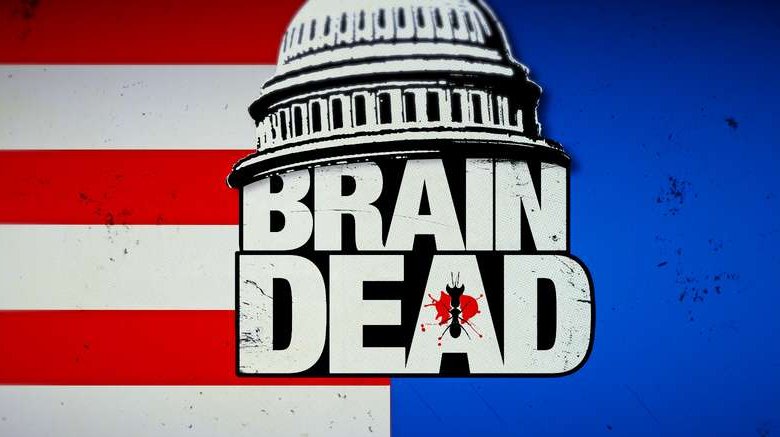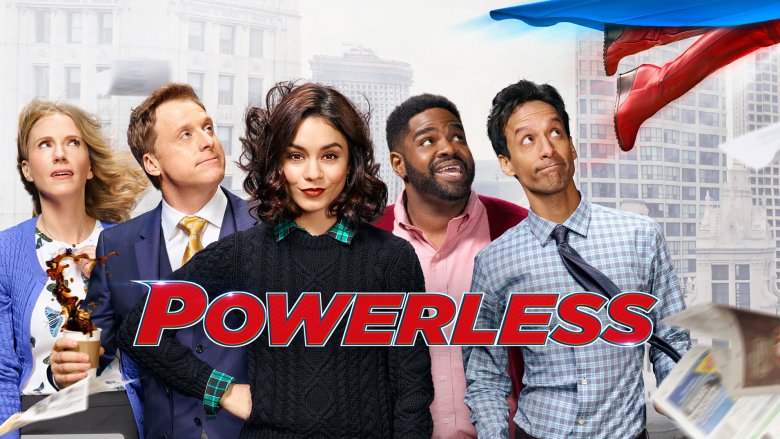TV Shows We Knew Would Be Canceled Before They Even Aired
Every TV show will eventually be canceled. Sadly, there will come a day when you activate the display unit in your flying car and won't find a new episode of The Simpsons to enjoy while popping that purple nutrient pellet.
Some shows live long, fruitful lives, spawning spinoffs, syndication rights fights, and celebrity-filled anniversary specials. Many more, however, rarely survive a single season.
It might be the cast, the writers or even the premise. Sometimes it's simply bad timing or some executive having a bad day. We'll never know all the real reasons any show is canceled, but there are often telltale signs that a series is doomed from the get-go. Here are some examples of TV shows we knew would never make it past the first season — or, in several cases, even past the pilot.
The Hasselhoffs (2010)
While he may have cut his teeth as Dr. Snapper Foster on long-running daytime soap opera The Young and the Restless, it was Knight Rider that made David Hasselhoff a household name. He followed that up with Baywatch which, despite a rocky start, became a worldwide phenomenon (albeit in part due to his bouncy beach costars). None of that, however, was enough to save his short-lived reality series The Hasselhoffs.
Besides David, Hasselhoffs co-starred his two daughters, Taylor-Ann and Hayley, who just so happened to be looking for work in the entertainment industry. The Hoff's waning popularity, the glut of celebrity-centric, family-based reality shows, the obvious ploy to jump-start his kids' careers — and give his own yet another boost — without a sandy beach or talking car was more than enough to get the series canceled after only two aired episodes.
Who's Your Daddy? (2005)
Investigative shows that dig into celebrities' pasts are usually quite enjoyable. See Who Do You Think You Are as a success story, filled with fun and tearful moments with celebrities learning — or at least acting as if they're learning — about their ancestors. Shows like This is Us have given us plenty of heartfelt moments about adopted children finding their biological parents.
And then there's Who's Your Daddy?
The cringeworthy premise of this reality game show — yeah, it was actually a game show — was that an adult who was adopted as a child was put in a room with 25 men and they had to figure out which one was their biological father. The prize for being right was $100,000 — and, of course, reuniting with their father for the first time, very publicly on camera.
Thank goodness the first unfortunate contestant, T.J. Meyers, was right, and didn't lose $100,000 to some stranger. The bright side is that they would have been reunited at the end even if she guessed incorrectly.
Even so, nothing angers adoption rights groups quite like a 90-minute game show exploiting a sensitive situation and unintentionally shaming a father for abandoning his child. In fact, at least one affiliate station simply refused to air the first episode.
Do You Trust Me? (2002)
Sometimes a show sounds like a great idea — especially if it's based on an already successful one — and, yet, its failure can be foretold by its name. Take Do You Trust Me?, an attempt to revive the structure of a previous game show, Friend or Foe, which aired five years earlier. Hosted by future Fox News commentator Tucker Carlson (which, for some, is a sign of the end in itself), Trust Me was touted as a game of "skill, chance and trust" in which contestants worked together to answer questions and earn money for a "shared trust fund" to win $2 million. Unsurprisingly, it was thick with cheese and throughout the show juicy tidbits were revealed — usually about how shady each contestant was — by their family and friends. With all that, contestants had to continually decide whether or not to be honest with each other.
Layer on a miss-three-answers-and-you're-out scheme atop a show that was deeply confusing and contrived — and heavily borrowed — all while questioning the honesty of regular citizens, and it's no surprise that CBS didn't even air the six recorded episodes. The answer was clearly "No, we don't trust you"...to entertain us with a decent game show.
Garbage Pail Kids (1987)
The undeniable phenomenon that was the Cabbage Patch Kids changed the way people shop for the holidays forever — and even spawned a questionable animated TV series of its own. In an effort to get in on the craze, as well as poke a bit of fun at it, Topps hired Pulitzer-winning cartoonist Art Spiegelman to lampoon the dolls with a line of cards dubbed the Garbage Pail Kids. While the parody was less than flattering, it garnered its own popularity and has continued to maintain its cult status.
Like the Cabbage Patch Kids, their trash-dwelling kin inspired their own multimedia spinoffs; unfortunately, their onscreen adventures didn't end well. A 1987 big-screen Garbage Pail Kids movie earned miserable reviews and yielded equally miserable box office results, which is probably a big part of why the Garbage Pail Kids cartoon series was canceled before it even aired.
It proved yet another instance of disgruntled parent groups, a dying fad, and good taste colluding to kill a bad idea before it hit the airwaves. The unaired season was, however, eventually released on DVD, proving that there's a market for pretty much anything eventually.
Mail Order Family (2016)
In the case of 2016's Mail Order Family, the premise was bad enough to get a series scrapped without an episode ever being shot.
The series was touted as being about a widower who orders a bride from the Philippines to help him raise his daughters, loosely based on Superstore writer-producer Jackie Clarke's own experiences. The day after the show was announced, Change.org hosted a petition to stop it, noting that the series would glorify racial stereotypes and human trafficking — two serious and certainly non-laughable concerns.
Soon after, the producers decided to err in favor of sensitivity — and good taste — and canceled the show.
Misconceptions (2006)
In what would normally seem to be a case of the name determining a show's fate, 2006's Misconceptions had the (mis)fortune of being a casualty in the merger of the UPN and WB networks. We're not certain if it's more ironic or appropriate that a show with such a title never aired (despite six episodes being filmed).
It was to star Jane Leeves (Frasier, Hot in Cleveland), French Stewart (3rd Rock from the Sun) and Taylor Momsen (Gossip Girl), with Momsen's character trying to find her her biological father and, apparently, trying to overcome possibly one of the most trite and overdone adopted character premises on TV.
Maybe she should have tried Who's Your Daddy? Then she might have at least gotten $100,000 out of the deal. Okay, she was probably paid, but it obviously didn't turn into a long-term gig for anyone.
Murder Police (2013)
Duplicating the success of Adult Swim's quirky and insanely oddball animated series hasn't been easy for any other network. Case in point: Fox seems to be unable to hold onto much more than The Simpsons and Bob's Burgers for longer than a year or two (and some of their castoffs have found success at other networks). Napoleon Dynamite at least got some airtime — the 2013 series Murder Police remained a chalky outline on the cutting room floor.
Created by David A. Goodman and Jason Ruiz, Murder Police followed a group of inept detectives described as perverted, corrupt and lazy. Three amazing traits, right? Perhaps the voice talent (Wilmer Valderrama, Jane Lynch, Will Sasso, Chi McBride, Peter Atencio, Justina Machado and Jason Ruiz) was what convinced execs to produce several scenes...yet they were ultimately also enough to make the network stop production before a single episode could be pieced together.
The name was also a dead giveaway. Murder Police? That's like a cooking show named Salmonella Chefs.
Cavemen (2007)
Those scraggly, smooth-talking cro-magnons who starred in many a GEICO commercial were supposed to make it to the big time in 2007 by starring in their own TV series, aptly titled Cavemen. While the spokes-magnons were busy touting insurance, they also imparted an anti-stereotyping message laced with humor.
The concept was funny enough as 15- to 30-second vignettes, but a 30-minute show turned it from clever into offensive. In the ultimate in unfortunate irony, various groups accused the stereotype-fighting characters of actually stereotyping them. Adding insult to injury, the actors from the insurance commercials weren't even used in the series.
After the protest pile-on, the show was drastically retooled, removing potentially offensive aspects and, apparently, most of the humor. It really could never quite recover from the pilot, although a little more than half of its 13 filmed episodes aired before it was finally declared extinct.
Armed and Dangerous (2007)
If you've ever seen a reality show starring celebrities — try any episode of I'm With Busey — you know they aren't always the most stable individuals. Put a gun in their hands, a badge on their chest, and you're clearly tempting fate. Naturally, someone thought this was a great premise for a TV series.
Armed and Dangerous wasn't even a scripted comedy, mind you, but a reality series featuring a motley crew of celebrities — Erik Estrada, La Toya Jackson, Jack Osbourne, Trish Stratus and Jason "Wee Man" Acuña — actually training to become reserve police officers for the Muncie Police Department in Muncie, Indiana.
After they actually graduated, they went on patrol with cameras in tow, a la Cops. While six episodes did air, the result was a wrongful entry lawsuit and zero chance of ever finishing out the season.
Secret Talents of the Stars (2008)
In the original Battle of the Network Stars, we knew we were in for a group of famous faces out of their element, doing wacky things to try and win a trophy. The novelty was that a bevy of talented actors were certainly going to muck up trying to compete in semi-athletic events. (The latest, sterile incarnation features toned and athletic celebs competing sans audience, but that's not what we're talking about here).
Secret Talents of the Stars, however, was a venue for the already wealthy and famous to once again demonstrate their skills, albeit talents we'd not previously seen onscreen.
With (the amazing) Debbie Reynolds, singer Brian McKnight, and producer-agent Gavin Polone as judges, a virtual parade of celebs took to the stage to prove they could do more than recite lines for a camera. Clint Black attempted standup comedy, wrestler Ric Flair did a bit of salsa (dancing), and a dozen others attempted circus-style acts. If it had been called Circus of the Stars, it might have lasted.
Instead, this early attempt to copy America's Got Talent with famous folk simply flopped. Actors, athletes, and musicians out of their element, trying to show off a secondary talent while trying to win even more money, proved to be an unrewarding watch. Audiences, it would seem, really just want to see famous people either doing what they do best or hilariously flopping. Secret Talents gave them neither, and the show was canceled after a single episode. Turns out everyone lost.
BrainDead (2016)
While many of us are willing to entertain sci-fi shows about government conspiracies, aliens on Earth, and the extraterrestrial influence on our government, the 2016 CBS series BrainDead was unable to wrap all that within enough comedy to make to palatable. Either that, or there are simply too many people cranky about our current political situation to derive enough humor from a show laced with political commentary.
In the show, insect aliens from another planet have taken over the brains of most, if not all, of the politicians in Washington. Perhaps the offbeat political comic-thriller never really landed with audiences because it felt too true. Or maybe people were disappointed it wasn't the zombie-filled action series the name implied.
In any case, BrainDead attempted to satirize both network TV and politics while being on network TV in the midst of an emotionally heated political year. Not an easy task, indeed. Add the fact that the punny name also implied that we're a bit dead in the head for falling for it all, and it's no surprise that audiences neglected to tune in.
Powerless (2017)
Sometimes a show is doomed to fail despite seeming to have nearly everything going for it — like, say, a great cast, a funny premise, and the trending popularity of superhero-based TV series. Powerless also seemed to have an interesting take on the genre, giving us mere mortals in cubicles the slimmest bit of hope that we, too, could become contributing members of the superhero universe.
In the 2017 show, semi-successful product developers employed at Wayne Security would create and test the gadgets used by heroes, and a few used to protect us from their epic battles. While that sounds pretty hilarious, it lacked a key element: recognizable DC heroes onscreen. Even the promo image shows what could possibly be Supergirl's feet. You can only tease fans for so long, tossing around Bruce Wayne's name and reading reports of Batman using your products, before fans get tired of waiting.
The setup itself was suspect. It had Bruce's far less capable cousin (he has a cousin?) Vanderveer "Van" Wayne (Alan Tudyk) running a second-rate department at a Wayne Enterprises subsidiary and occasionally interacting with secondary heroes most people had never heard of (Crimson Fox and Jack O Lantern?). Ultimately, it left audiences feeling like they were watching a second-rate series, and ratings dwindled into the Phantom Zone.
The show was canceled before the last two episodes could air, although one episode featuring Adam West surfaced online as a tribute after his passing. Even the late, great Adam West, however, couldn't help the show recover from its light viewership.
